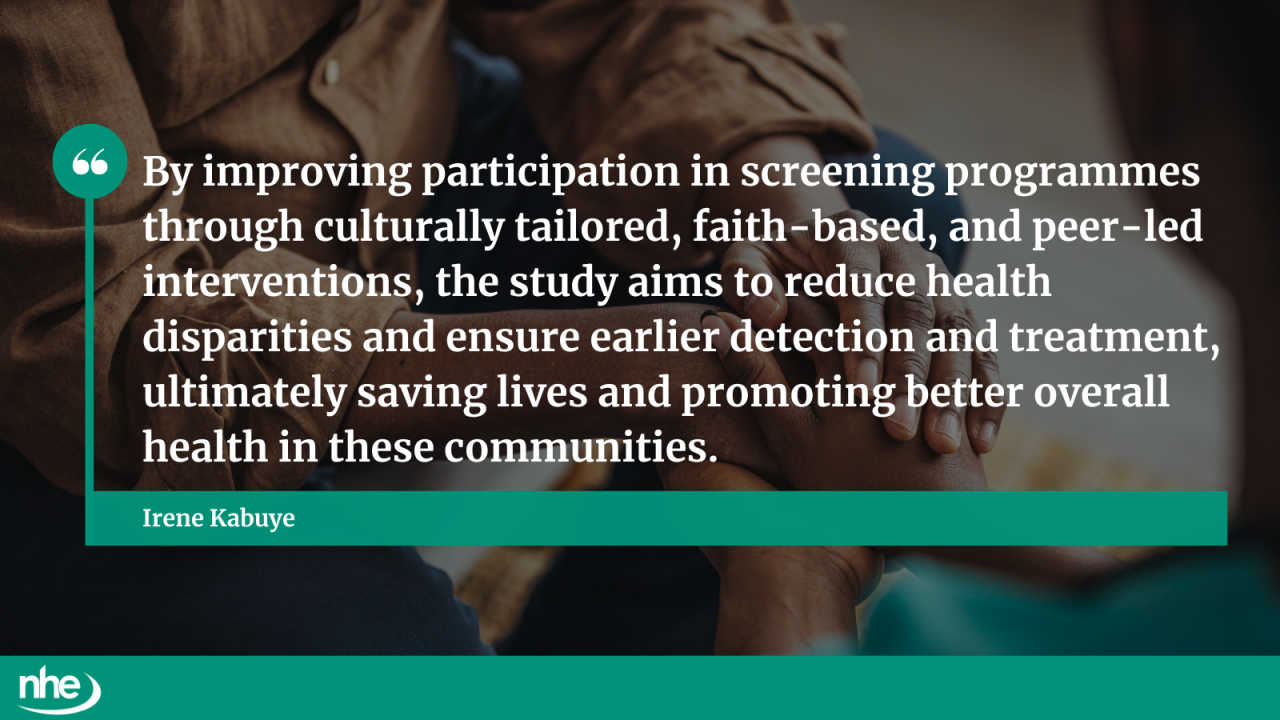The University of Sunderland has been awarded more than half a million pounds for a groundbreaking study aimed at addressing health disparities in Black communities.
The EQUITA (EQUITy in Black Adult health) study, funded by the National Institute for Health and Care Research (NIHR), has received £618,000 to improve the uptake of vital health screenings.
The EQUITA study will focus on a co-produced, faith-placed intervention designed to increase the uptake of breast, cervical, bowel, and abdominal aortic aneurysm (AAA) screenings in the north-east of England, Leeds, and Scotland.
Research highlights that screening uptake among ethnic minority groups, particularly Black African and Caribbean communities, remains lower than the national average, often leading to delayed diagnoses and less effective treatments.
To combat this issue, the EQUITA study will implement workshops aimed at informing and encouraging Black men and women to attend these crucial screenings. These workshops will address barriers such as lack of awareness, embarrassment, and previous negative healthcare experiences, which can deter individuals from participating in screenings. The workshops will be delivered to 300 Black individuals aged 25 to 74 across churches in the north-east, Leeds, and Scotland. Participants will be divided into two groups to assess the intervention's effectiveness.
Dr Floor Christie-de Jong, Associate Professor in Public Health for Medicine at the University of Sunderland, leads the research alongside co-lead Dr Judith Eberhardt, Associate Professor of Psychology at Teesside University. Both researchers are part of Fuse, the Centre for Translational Research in Public Health. Irene Kabuye will play a pivotal role in recruiting members of the public for the EQUITA workshops in the north-east.

Kabuye said:
“This study is important because it will address the barriers to screening participation in Black African and Caribbean communities, which can lead to late-stage diagnoses and worse health outcomes.
“By improving participation in screening programmes through culturally tailored, faith-based, and peer-led interventions, the study aims to reduce health disparities and ensure earlier detection and treatment, ultimately saving lives and promoting better overall health in these communities.”
Over the next 24 months, the EQUITA study will assess the effectiveness of this faith-placed intervention in improving screening rates among Black communities. By addressing health inequalities and promoting early detection, the University of Sunderland aims to make a significant impact on public health and well-being.
Image credit: iStock



















